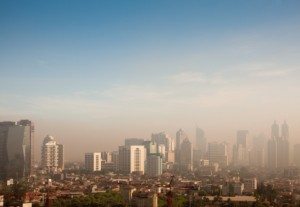Wildfires and heat waves have me thinking about peak oil, climate change and the efforts to convince folks that oil supply is not an issue. Here’s why. Across the Pond at the Guardian, George Monbiot, a British writer well known for his environmental activism, has recently declared Peak Oil a dead letter, lamenting that there is still enough in the ground to fry the climate. True, but also wrong.
 Beyond the basic flaw of interpreting “Peak Oil” as shorthand for “imminently running out of,”others have done a detailed job rebutting not only Monbiot’s misunderstandings, but also the study that was his inspiration. My interest, however, is on the “boom” in oil production he mentions and this lament toward the bottom of the piece: “Twenty years of efforts to prevent climate breakdown through moral persuasion have failed…”
Beyond the basic flaw of interpreting “Peak Oil” as shorthand for “imminently running out of,”others have done a detailed job rebutting not only Monbiot’s misunderstandings, but also the study that was his inspiration. My interest, however, is on the “boom” in oil production he mentions and this lament toward the bottom of the piece: “Twenty years of efforts to prevent climate breakdown through moral persuasion have failed…”
And I suspect that failure will continue. While some people are moved to change by the havoc wrought on the environment in pursuit of unconventional sources of fossil fuel, the vast majority aren’t – or are willing to look the other way.
The destruction Canada is doing to pristine wilderness in Alberta isn’t a secret, but it’s only increasing. That Macondo well blow-out in the Gulf of Mexico a couple years back is still showing up in the coastal environment, but that hasn’t prevented large oil companies with spotty safety records from receiving permission to drill in even more hostile and environmentally sensitive places, like the Arctic.
But, humans are risk and change averse. We will stay with what we know, even if it’s got problems, rather than risk a radical change. Oil has proven it has the power – quite literally – to transform life from a nasty, brutish and short struggle for survival into a comfortable, convenient and extended tussle for entertainment. Moral persuasion is unlikely to make headway against that perception. People like comfort and convenience, not to mention entertainment.
The vast majority of “consumers” are not interested in going back to a mythically bucolic future. Even “country folk” like their gas-guzzling pick-up trucks, bass boats, chain saws and ATVs. They make life easier and more fun.
The challenge for those who care about our environment, and the affect fossil fuel use is having on it, is to care about our current lifestyle; what it offers and what it doesn’t.
Green and sustainable are, at base, moral persuasion arguments and they’re not working. Can your alternative, sustainable, greener offering make daily life more comfortable, convenient, secure or safe? Can it help a business be demonstrably more profitable, or insulate it from uncertainty in a key area?
If so, then that’s your lead message because for most consumers the only alternative they’re eager to embrace, especially in times of uncertainty, is one that improves their life.






